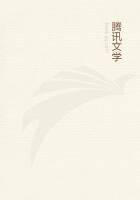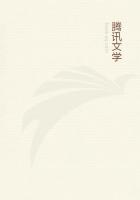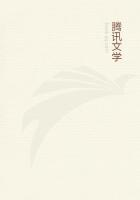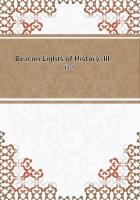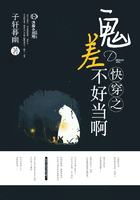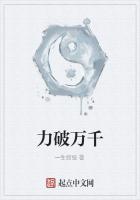Fichte calls the Man of Letters, therefore, a Prophet, or as he prefers to phrase it, a Priest, continually unfolding the Godlike to men: Men of Letters are a perpetual Priesthood, from age to age, teaching all men that a God is still present in their life, that all "Appearance," whatsoever we see in the world, is but as a vesture for the "Divine Idea of the World,"for "that which lies at the bottom of Appearance." In the true Literary Man there is thus ever, acknowledged or not by the world, a sacredness: he is the light of the world; the world's Priest;--guiding it, like a sacred Pillar of Fire, in its dark pilgrimage through the waste of Time. Fichte discriminates with sharp zeal the _true_ Literary Man, what we here call the _Hero_ as Man of Letters, from multitudes of false unheroic. Whoever lives not wholly in this Divine Idea, or living partially in it, struggles not, as for the one good, to live wholly in it,--he is, let him live where else he like, in what pomps and prosperities he like, no Literary Man; he is, says Fichte, a "Bungler, _Stumper_." Or at best, if he belong to the prosaic provinces, he may be a "Hodman; " Fichte even calls him elsewhere a "Nonentity," and has in short no mercy for him, no wish that _he_ should continue happy among us! This is Fichte's notion of the Man of Letters.
It means, in its own form, precisely what we here mean.
In this point of view, I consider that, for the last hundred years, by far the notablest of all Literary Men is Fichte's countryman, Goethe. To that man too, in a strange way, there was given what we may call a life in the Divine Idea of the World; vision of the inward divine mystery: and strangely, out of his Books, the world rises imaged once more as godlike, the workmanship and temple of a God. Illuminated all, not in fierce impure fire-splendor as of Mahomet, but in mild celestial radiance;--really a Prophecy in these most unprophetic times; to my mind, by far the greatest, though one of the quietest, among all the great things that have come to pass in them. Our chosen specimen of the Hero as Literary Man would be this Goethe. And it were a very pleasant plan for me here to discourse of his heroism: for I consider him to be a true Hero; heroic in what he said and did, and perhaps still more in what he did not say and did not do; to me a noble spectacle: a great heroic ancient man, speaking and keeping silence as an ancient Hero, in the guise of a most modern, high-bred, high-cultivated Man of Letters! We have had no such spectacle; no man capable of affording such, for the last hundred and fifty years.
But at present, such is the general state of knowledge about Goethe, it were worse than useless to attempt speaking of him in this case. Speak as I might, Goethe, to the great majority of you, would remain problematic, vague; no impression but a false one could be realized. Him we must leave to future times. Johnson, Burns, Rousseau, three great figures from a prior time, from a far inferior state of circumstances, will suit us better here. Three men of the Eighteenth Century; the conditions of their life far more resemble what those of ours still are in England, than what Goethe's in Germany were. Alas, these men did not conquer like him; they fought bravely, and fell. They were not heroic bringers of the light, but heroic seekers of it. They lived under galling conditions; struggling as under mountains of impediment, and could not unfold themselves into clearness, or victorious interpretation of that "Divine Idea." It is rather the _Tombs_ of three Literary Heroes that I have to show you. There are the monumental heaps, under which three spiritual giants lie buried.
Very mournful, but also great and full of interest for us. We will linger by them for a while.
Complaint is often made, in these times, of what we call the disorganized condition of society: how ill many forces of society fulfil their work;how many powerful are seen working in a wasteful, chaotic, altogether unarranged manner. It is too just a complaint, as we all know. But perhaps if we look at this of Books and the Writers of Books, we shall find here, as it were, the summary of all other disorganizations;--a sort of _heart_, from which, and to which all other confusion circulates in the world! Considering what Book writers do in the world, and what the world does with Book writers, I should say, It is the most anomalous thing the world at present has to show.--We should get into a sea far beyond sounding, did we attempt to give account of this: but we must glance at it for the sake of our subject. The worst element in the life of these three Literary Heroes was, that they found their business and position such a chaos. On the beaten road there is tolerable travelling; but it is sore work, and many have to perish, fashioning a path through the impassable!
Our pious Fathers, feeling well what importance lay in the speaking of man to men, founded churches, made endowments, regulations; everywhere in the civilized world there is a Pulpit, environed with all manner of complex dignified appurtenances and furtherances, that therefrom a man with the tongue may, to best advantage, address his fellow-men. They felt that this was the most important thing; that without this there was no good thing.

